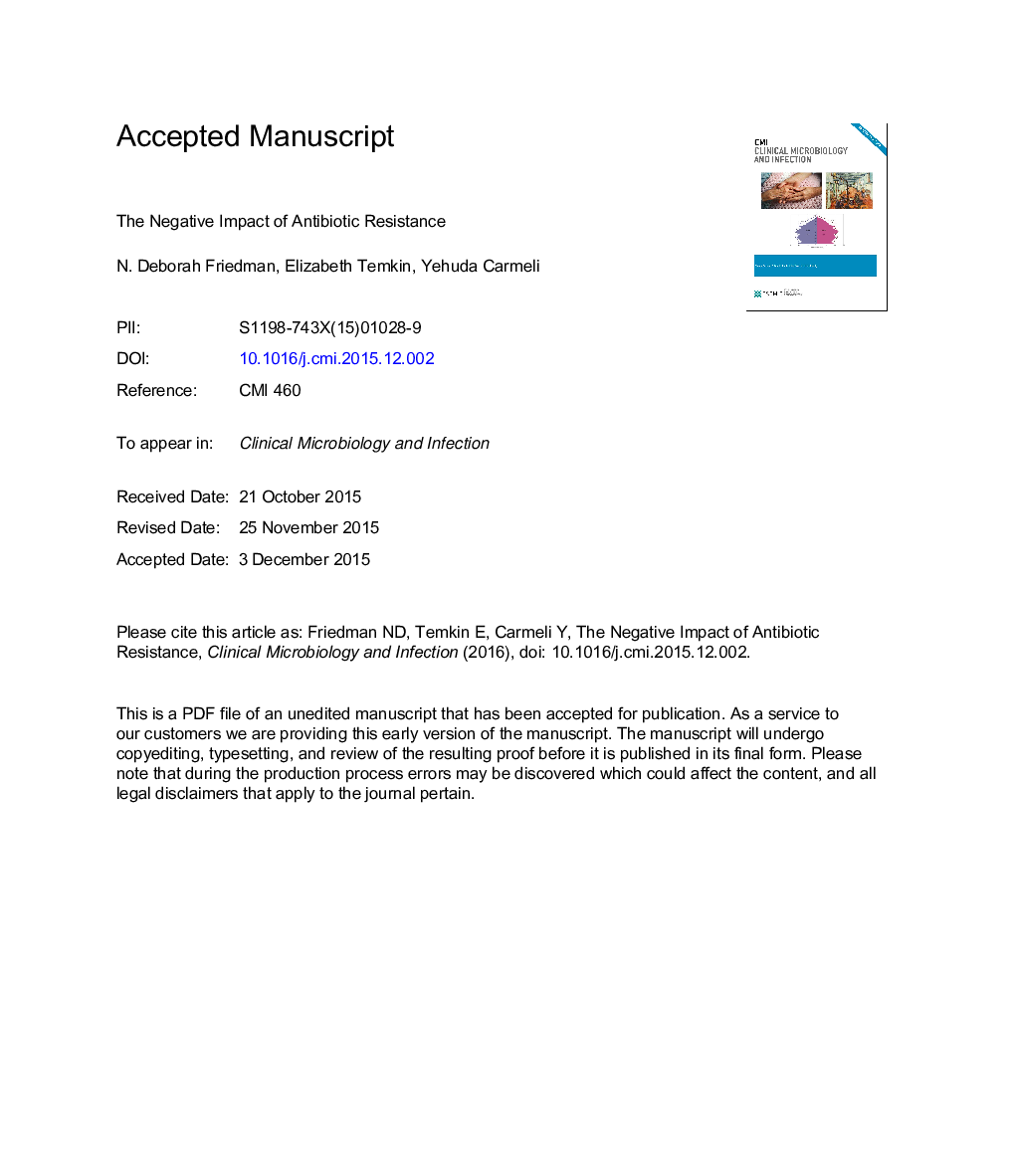| Article ID | Journal | Published Year | Pages | File Type |
|---|---|---|---|---|
| 6128918 | Clinical Microbiology and Infection | 2016 | 28 Pages |
Abstract
Antibacterial therapy is one of the most important medical developments of the twentieth century; however, the spread of resistance in healthcare settings and in the community threatens the enormous gains made by the availability of antibiotic therapy. Infections caused by resistant bacteria lead to up to two-fold higher rates of adverse outcomes compared with similar infections caused by susceptible strains. These adverse outcomes may be clinical or economic and reflect primarily the failure or delay of antibiotic treatment. The magnitude of these adverse outcomes will be more pronounced as disease severity, strain virulence, or host vulnerability increases. The negative impacts of antibacterial resistance can be measured at the patient level by increased morbidity and mortality, at the healthcare level by increased resource utilization, higher costs and reduced hospital activity and at the society level by antibiotic treatment guidelines favouring increasingly broad-spectrum empiric therapy. In this review we will discuss the negative impact of antibiotic resistance on patients, the healthcare system and society.
Related Topics
Life Sciences
Immunology and Microbiology
Microbiology
Authors
N.D. Friedman, E. Temkin, Y. Carmeli,
